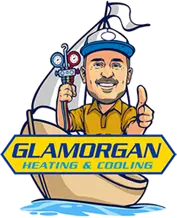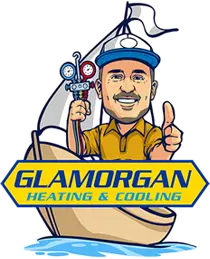
Essential Air Conditioner Filter Replacement Guide for Spring
As the warmer months approach in Saratoga, preparing your home for comfort and efficiency becomes a priority. An essential component of this preparation is maintaining your air conditioning system, particularly focusing on the air conditioner filter. This small yet crucial part of your AC system ensures optimal indoor air quality and performance. With spring arriving, it’s the perfect opportunity to assess and replace your air filter, ensuring your home remains cool and comfortable. Air conditioner filters are designed to trap dust, pollen, and other airborne particles, preventing them from circulating indoors. However, over time, these filters can clog, leading to reduced air quality and decreased system efficiency. By changing your air conditioner filter this spring, you can support the smooth operation of your AC unit while promoting a healthier indoor environment for you and your family. Why Air Conditioner Filter Replacement Is Crucial Air conditioner filters keep your indoor air clean by capturing dust, dirt, and other pollutants. They protect your AC system by preventing debris from entering and causing damage. When filters aren’t replaced regularly, they become clogged and lose effectiveness, leading to various issues: 1. Reduced Air Quality: A dirty filter allows dust and allergens to circulate, impacting those with allergies or respiratory issues. This can result in poor indoor air quality, especially as you spend more time indoors during hotter months. 2. Decreased Efficiency: A clogged filter forces your AC system to work harder to pull air through. This increases energy consumption and can result in higher utility bills. An efficient air conditioner consumes less energy while maintaining a comfortable temperature. 3. System Overload: An air conditioner working excessively to circulate air puts unnecessary strain on the system. This can lead to breakdowns and costly repairs. Regularly replacing your filter helps extend the lifespan of your AC system. 4. Health Concerns: For residents with asthma or allergies, poor air quality can exacerbate symptoms. Keeping your filter clean helps maintain a healthier indoor environment. Considering these factors, making air conditioner filter replacement part of your spring maintenance routine benefits both your health and wallet. Addressing this small task now can prevent larger problems later, ensuring a cool and clean home environment. Signs That Your Air Conditioner Filter Needs Replacement Recognizing when your air conditioner filter needs replacement can prevent future issues. Here’s what to look for: 1. Increased Dust: If more dust is settling on your furniture, it may indicate a clogged filter. As filters saturate with particles, they lose their ability to trap dust, allowing it to circulate throughout your home. 2. Reduced Airflow: A significant drop in airflow from your vents is a clear sign that your filter needs attention. This happens when the filter is so blocked that air struggles to move through it, affecting the overall performance of your AC system. 3. Higher Utility Bills: A sudden spike in your electricity bill can be a red flag. A clogged filter makes your AC unit work harder to maintain the desired temperature, increasing energy consumption. Replacing the filter regularly can help avoid these setbacks and ensure your AC runs smoothly. Most filters need replacement every one to three months, but checking them more frequently during heavy usage periods is wise. Step-By-Step Guide to Replacing Your Air Conditioner Filter Replacing your air conditioner filter is straightforward and can be done easily. Follow these simple steps to keep your AC system in peak condition: – Turn Off the AC: Ensure your AC unit is off to prevent dust from entering during the change. – Locate the Filter: AC filters are usually in the return air duct or near the blower compartment. For central air systems, you might find the filter in the main return air grille. – Remove the Old Filter: Carefully slide out the old filter, noting its position so you can install the new one correctly. – Insert the New Filter: Take a new filter, check the arrow for airflow direction, and install it accordingly. Ensure it fits snugly with no gaps. – Turn the AC Back On: Once the new filter is in place, turn your AC back on and enjoy improved airflow and efficiency. Remember to consider ...





